How can this be done? What about work? School? Housing? Medical needs? Of course we can’t remove all the challenges involved, but we can share what we have done and learned. Scroll down to find out.
Work
Certainly, not every willing family is in a situation that allows them to leave their home to serve a mission. One thing that makes it possible for us is that my husband works online for a small company that allows him to live, temporarily, anywhere that is in a U.S. time zone and where there is internet. Just a few times during our first family mission, the internet went out at our abode, and he had to go across the street to the internet café there. Yes, even in our tiny town of Puyllucana, there was an internet café. I wish I had a picture of my husband huddled on the plastic stool in front of the computer with his headset, in a meeting with a client in the U.S., next to Peruvian school boys playing computer games online, several of them at each station cheering on the one seated boy and the avatar on the screen with outbursts of animated colloquial phrases and pumping fists. That picture will remain a nostalgic mental image. But I do have this picture of the outside of the café with the “parking lot”!

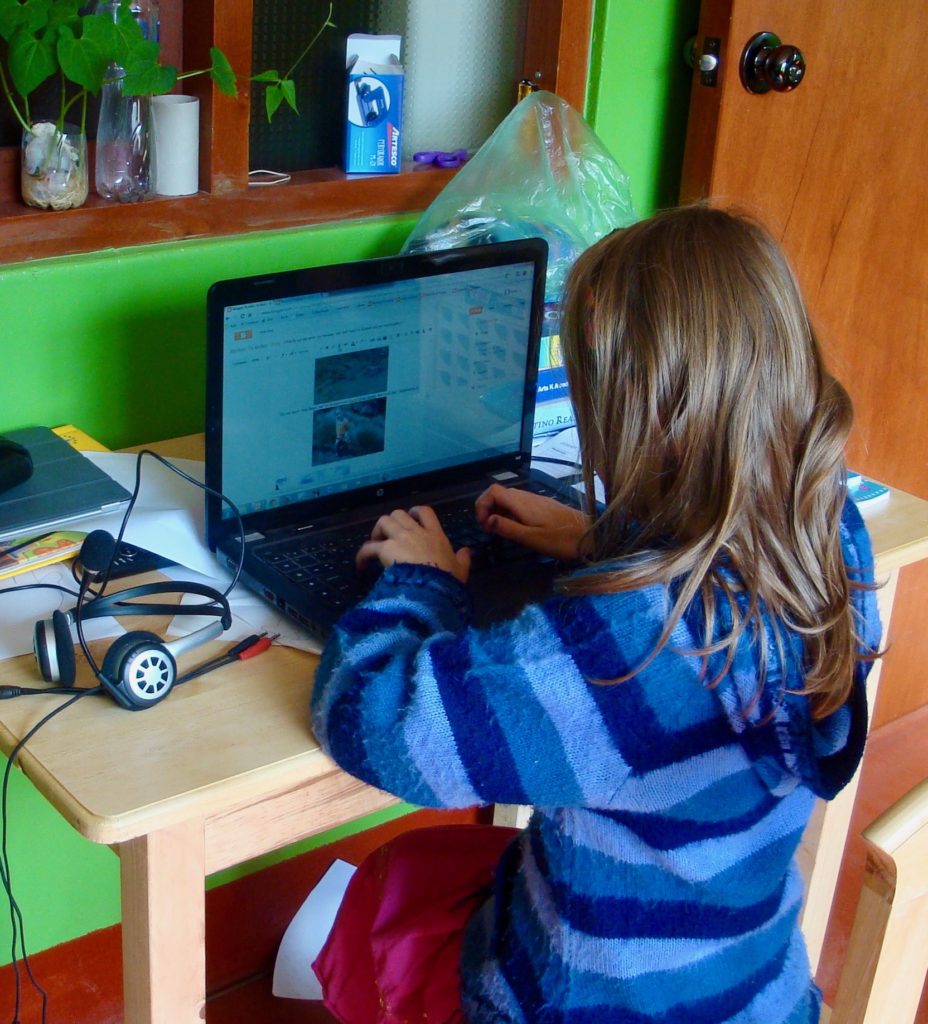
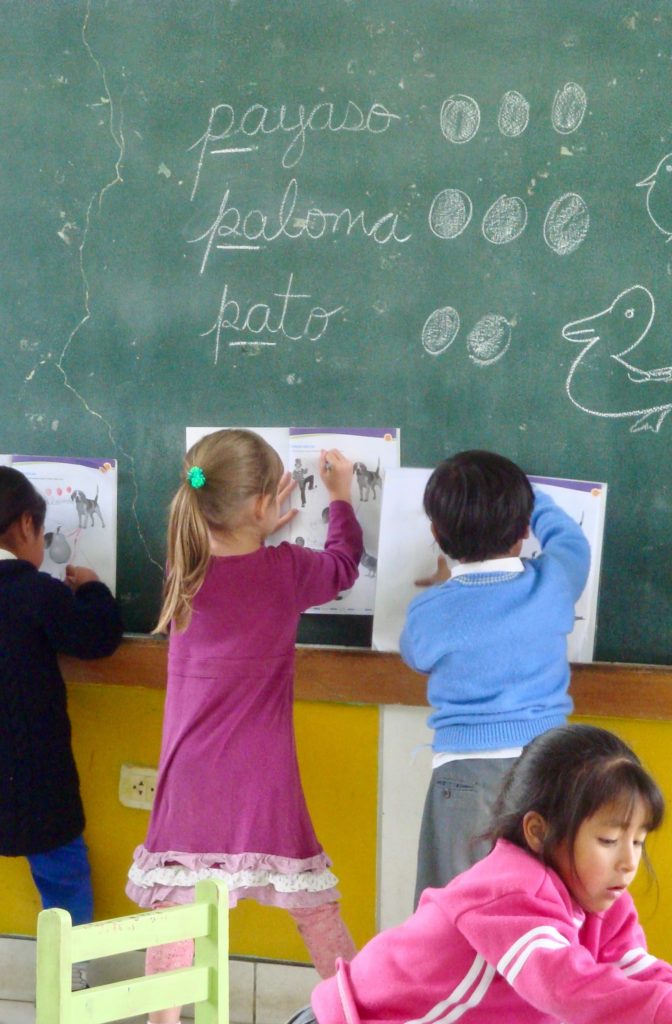
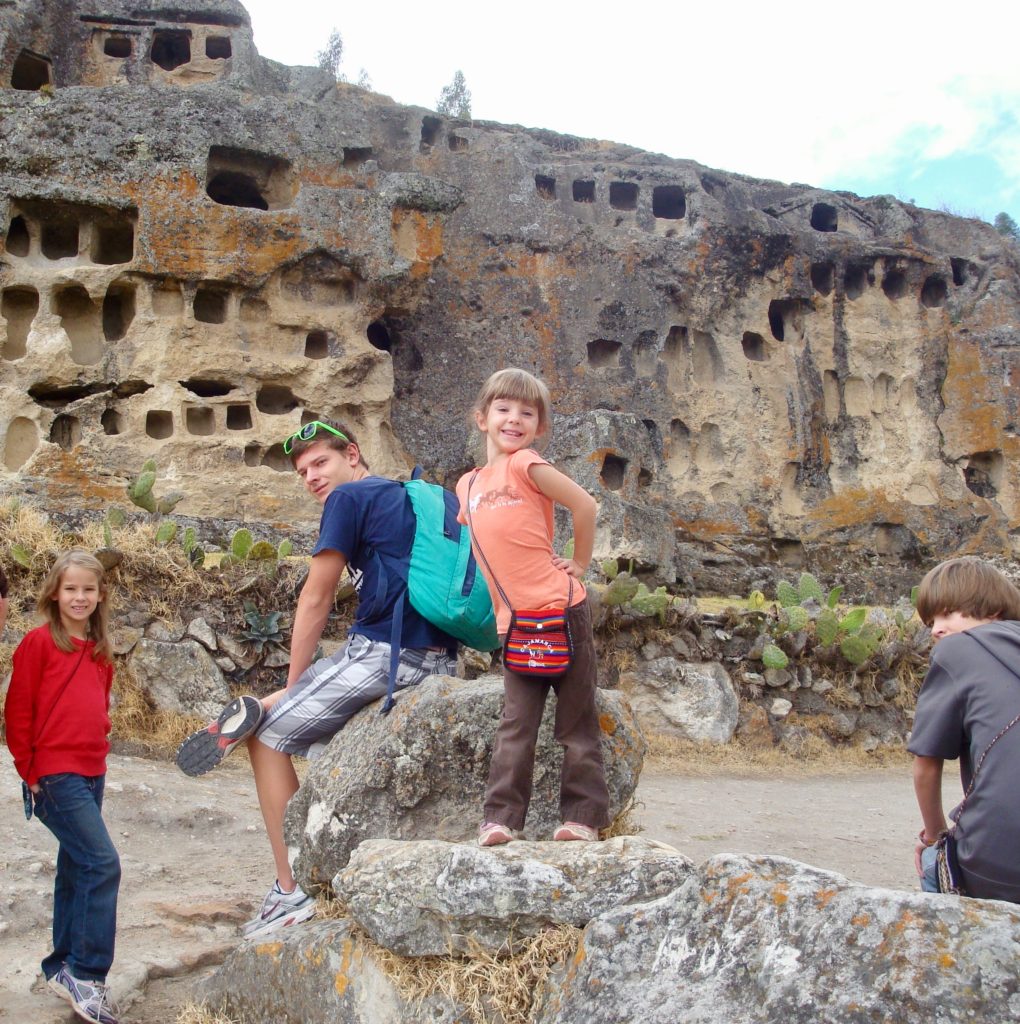
School
On the first time around, we decided to have the kids use an online public school. This worked well in many ways. We appreciated having school taken care of and materials sent to us before we left home that we brought to Peru with us. Since we had internet, they participated in some live class events and checked in with teachers. Our high school freshman completed extra courses which allowed him greater flexibility when he needed it later in his high school career.
At the same time, we experienced some disadvantages to an online public school. Some requirements were difficult to fulfill under the circumstances. That simple experiment with the celery and colored water? We had to hunt to find a stalk of limp celery and we didn’t have food coloring–-a failed experiment that got turned in late. Though our “nature walk” was super cool. And teachers were tolerant of our excuses, we just were reluctant to keep making them. Next time we are going to take advantage of the unusual circumstances and plan our own curriculum.
Our kindergartener was bored being at home with no one to play with, and she opted to attend the local “Jardín de Niños” in addition to her online kindergarten. Even though she was just starting kindergarten for U.S. schools, she was just finishing up the last year of preschool in Perú. Since the school year there runs from March to December, and since she wasn’t five years old the previous March, she wasn’t old enough for kindergarten on their school calendar. Her desire to play with kids her age pushed her to overcome her shyness.
She always said she didn’t learn any Spanish from this experience, and when I saw her playing with her classmates, they had a great time together using lots of nonsensical sounds. But the education of a foreign language runs deeper than just book learning, and her pronunciation of Spanish is excellent. Years afterwards when she looked back on her couple of months in Jardín, she recalled some conversations with classmates, and she always just thought they were speaking English!
The biggest concern about school this time is that it is my daughter’s junior year in high school. Which means SAT and ACT tests, as well as understanding credits required to graduate from public school. We have some work to do in this department.
Housing
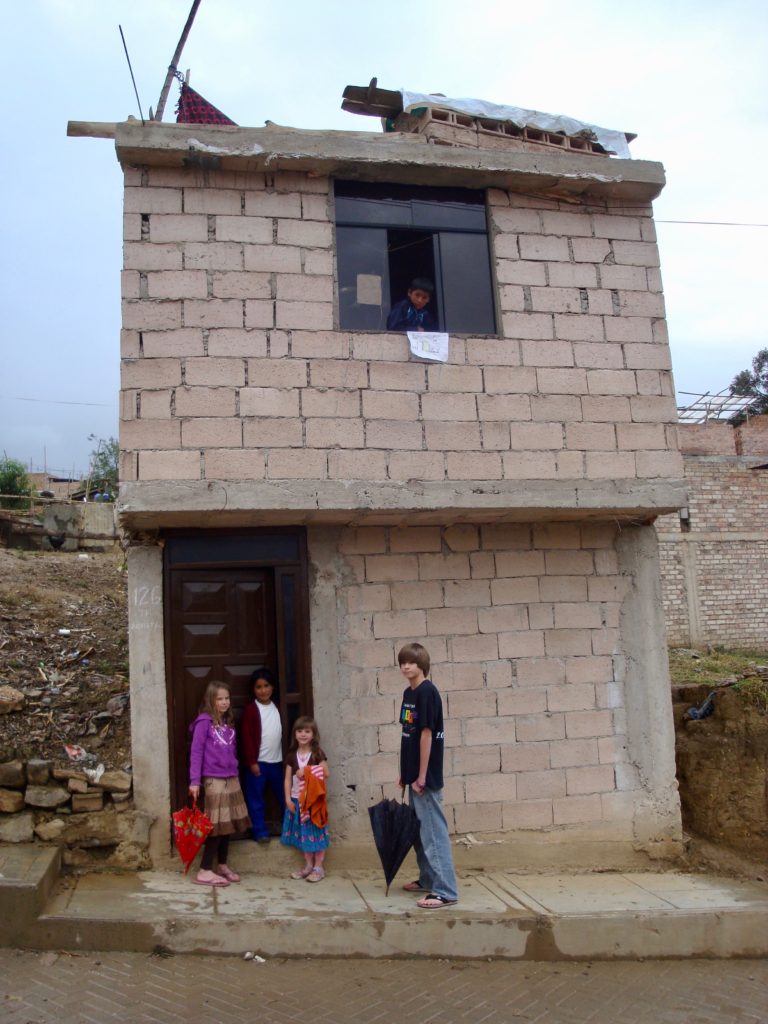
For our first mission to Peru, we were fortunate to find an ideal situation for the home we were leaving behind–a wonderful family who was looking for a furnished home to rent for just a few months while looking for a home to buy. We were able to just pack up personal items and feel good about who was in our home. Because the situation was so convenient for us, we charged less than market value for rent. We were both happy, and it gave us the added benefit of rent being tax free. We don’t yet know what we will be doing next time, hopefully we can find someone interested in renting our home again. Are you interested in renting a 4/5 bedroom home in * Centennial, Colorado, in a lovely neighborhood, just yards away from the pool and tennis courts and with sought-after schools?
The home on the right is not our house in Peru, but it was the home of friends around the corner from where we lived on our first trip. I just put it there because I like it, and as a bonus it reminds me of a house in the children’s book Go, Dog, Go. This time around, we don’t know where we will be living in Peru yet. We plan to stay in temporary housing while we find a more permanent location that would work not only for us, but for families that follow. Before we can do this, we need to know if there are families following us and see if they would like to collaborate. We would balance the desires for our living space (an office, a school room with a library and wall space for posters and a COUCH–something we missed having on our first trip, proximity to the chapel where kids could practice the piano, etc.) with financial viability. If you get in with us early, you can help make some of the decisions.
Health Care
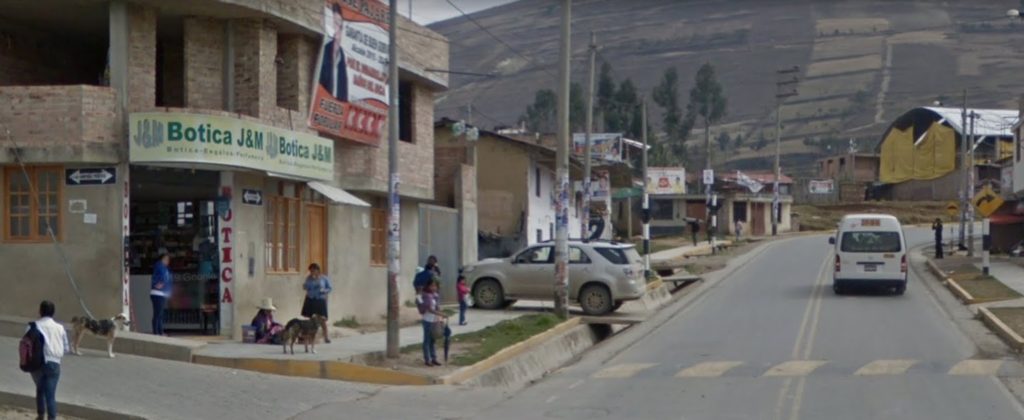
Being a family on a mission is really a short term move. Like moving, medical needs or insurance is up to the family. The Church is not legally responsible for you in any way, and “Families on Missions” isn’t either. We are just a group of families doing our best to serve the Lord well, which includes taking care of each other and our selves the best we can. We found the ward willing to be of service and support to us as well. It’s wonderful to go across the world and feel like there is instant family there!We did not have any significant medical needs while we were there the first time, though I do recall there being a clinic or hospital in Baños del Inca. Each of us (except the youngest, who remained perfectly healthy) had a 24hr. “stomach bug” once during our stay, though my husband had it several times. He eventually determined that the problem for him was eating lettuce, so from then on whenever we got pollo a la brasa, I got his salad. So a win-win in the end. A couple of those times we went across the street to one of the two botícas/farmacias there in our little town of Puyllucana, told them our symptoms, and they would sell us one dose of what they thought would help. It did seem to do the trick–apparently this is a common ailment! Those are our 2 botícas in 2019, they look pretty much the same except from the Google Earth pictures here, it looks like they’ve both added on a second floor!
Before anyone follows us, I promise to do better at looking in to the health care there, just to be better prepared. On your own end, be aware of what your insurance covers internationally. Typically, U.S. insurance only covers emergencies and only at 50%.